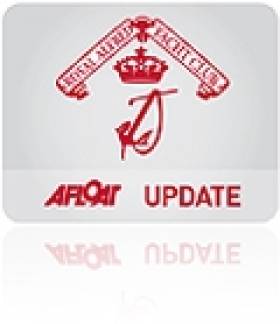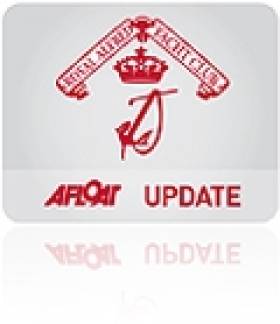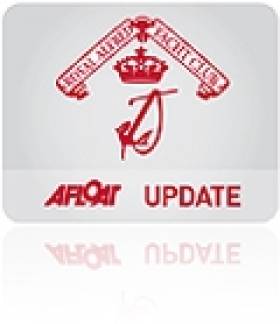Displaying items by tag: Bloomsday Regatta
Royal Alfred Make Scoring Change for Bloomsday Regatta
#bloomsdayregatta – Lack of wind for sailing on Dublin Bay today means Royal Alfred Yacht Club's Bloomsday regatta that is being run in conjunction with the ICRA National Championships has made a change to its sailing instructions.
Scoring in certain classes has been changed so a boat's RAYC Bloomsday Regatta score will be the total of her race scores for the first two races sailed at the ICRA National Championships tomorrow. Download the change to SIs below.
Meanwhile results for the B & C courses today are available to download below as an excel file.
Bloomsday Regatta will be held this Saturday on Dublin Bay under the Burgee of the Royal Alfred Yacht Club and in association with all four Dun Laoghaire waterfront Yacht Clubs. The host club is the Royal Irish Yacht Club.
The regatta caters for Cruiser Classes 0,1,2, 3a and 3b & White Sails, Laser SB20, Dragon, Sigma 33, Beneteau 31.7, Beneteau 21, Puppeteer, Ruffian, Glen, Shipman 23, Flying 15, Squib, Mermaid, Fireball, 420, IDRA 14, Laser 1, Radial, Water Wags and Portsmouth Yardstick.
There are two races back to back scheduled and the forecast indicates high winds for race time.
A notice of race is downloadable as a PDF below.
Late Entries Accepted for Bloomsday Regatta
Late entries are still being accepted for the Royal Alfred Yacht Club's Bloomsday Regatta on Saturday 18 June.
Racing for all cruiser and dinghy classes is set to begin at 1pm tomorrow in Dun Laoghaire.
Today is the closing date for postal entries, but late entries will still be accepted (incurring an additional late fee of €10).
To enter online without delay visit the RAYC website at www.rayc.ie.































































